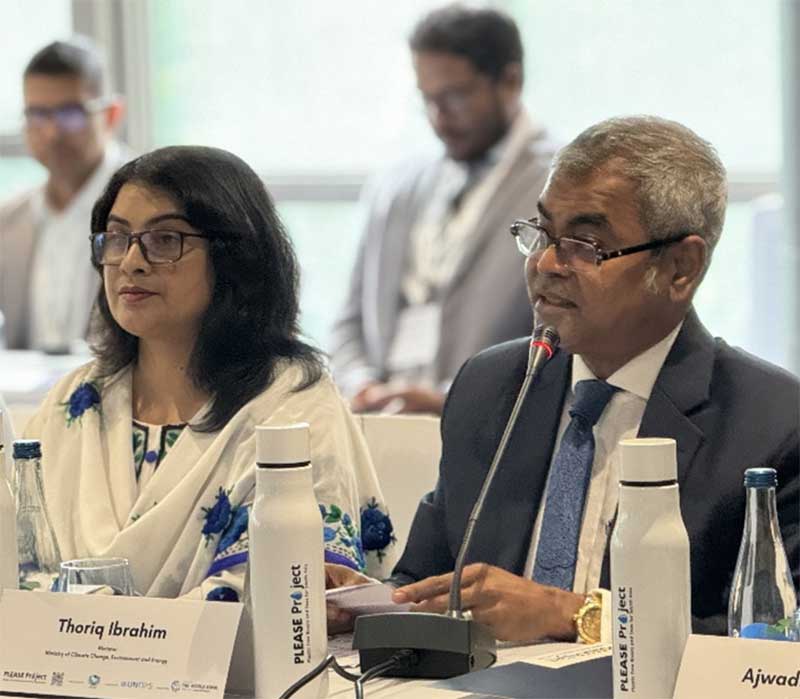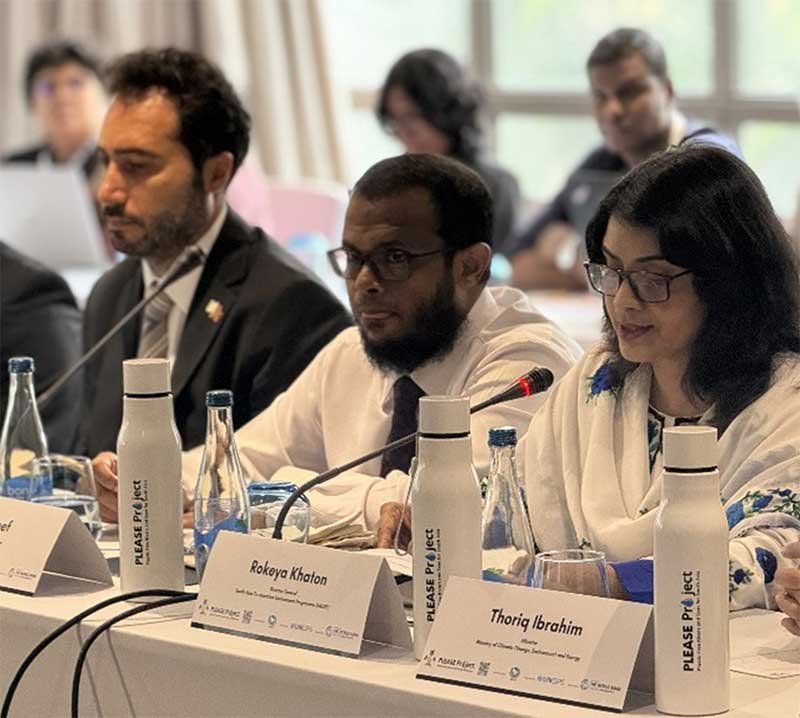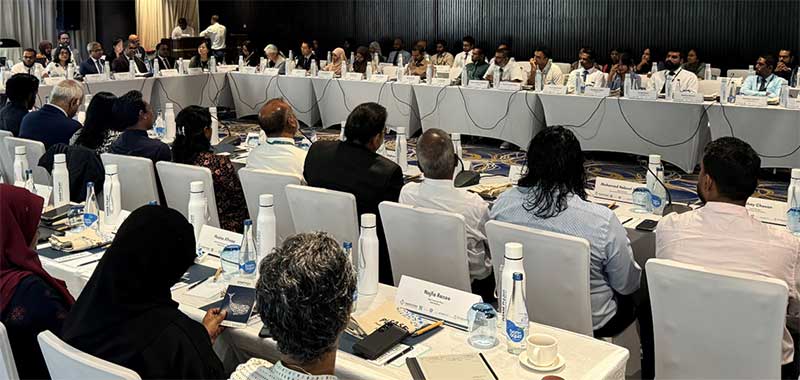August 26, 2024

On August 20, 2024, the South Asia Co-operative Environment Programme (SACEP), with support from the United Nations Office for Project Services (UNOPS), hosted a Round Table Discussion under the Plastic Free Rivers and Seas for South Asia (PLEASE) Project. This event brought distinguished guests, including the Minister, Deputy Minister, and Permanent Secretary of the Ministry of Climate Change, Environment and Energy, delegates from government agencies, bi/multilateral donors, development partners, and civil society representatives. The discussion focused on the current state of plastic pollution in the Maldives and explored collaborative strategies for addressing it.
Ms Rokeya Khaton, Director General of SACEP, opened the discussion by reaffirming SACEP’s commitment to tackling environmental challenges across South Asia. She encouraged all stakeholders to leverage the World Bank-funded PLEASE project as a platform for forging partnerships, boosting regional engagement, and advancing circular plastic economy solutions.
An engaging discussion revolved around the overall Policy landscape on plastic waste management, enforcement, challenges and lessons learned in the Maldives. The Single Use Plastic (SUP) Phase Out Plan 2020-2023, a national initiative to phase out the production, import and consumption of certain single-use plastics in the Maldives and promote the use of sustainable alternatives through implementing Market-Based Instruments (tariffs, levies, incentives, and duty exemption), and introducing Extended Producer Responsibility (EPR) was discussed in great length. The Ministry notified that Maldives is in the process of finalizing the EPR regulation and EPR Roadmap and views EPR as a precious policy instrument to make Producers responsible for plastic waste, especially in the country like the Maldives, which relies almost on imports of consumer goods. Besides this national policy discussion, the Maldives, a member of the Alliance of Small Island States (AOSIS), positions an ambitious agreement that addresses the whole lifecycle of plastic, addressing particularly harmful, problematic and unnecessary polymers, chemicals, additives and products on the international legally binding instruments (ILBI) on plastic pollution, including in the marine environment.
The event highlighted the vital support from the UNDP, World Bank, USAID, EU, and the Government of Japan, as well as the efforts of NGOs, CSOs, and local communities in combating plastic pollution. The Round Table brought the consensus that acknowledging the shared responsibility, ensuring consistency and complementarity in policies, funding and investments, fostering a culture of collaboration, establishing synergies among donors and development partners, and recognizing and continuing collaborative efforts was, is and should be the approach to effectively address plastic pollution at national, regional and global levels.
The Round Table Discussion concluded by celebrating the multi-stakeholder efforts made in the Maldives against plastic pollution, advancing further solutions, and taking up such discussions in upcoming forums, including the Regional Round Table Discussion planned under the PLEASE Project in October 2024.


